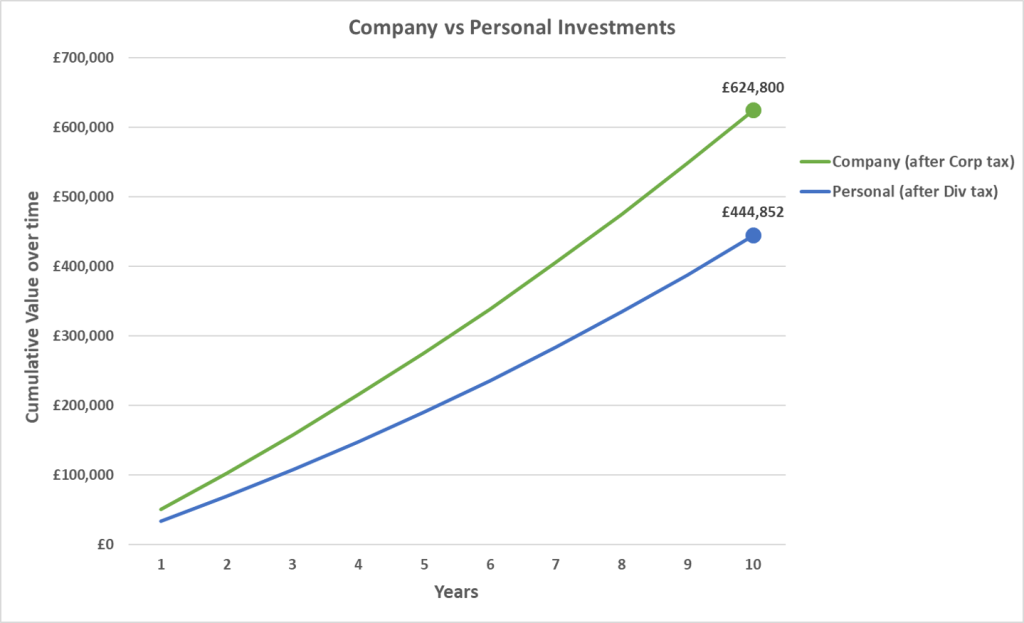News and Publications
Coronavirus: An Unprecedented Economic Intervention: Coronavirus Job Retention Scheme, VAT Deferral, Income Tax Deferral and Universal Credit
AN UNPRECEDENTED ECONOMIC INTERVENTION
In addition to measures announced in the Budget on 11 March 2020 and subsequently on 17 and 18 March 2020 (see our news releases here and here respectively), the Chancellor’s announcement on 20 March 2020 of a far-reaching package of measures allows businesses in this country to stand by their employees at a time of national emergency. Though this is not a helicopter money policy which would indiscriminately and radically boost the back pocket of workers and employers alike, such direct action by Government to encourage continued employment of people is a really good start. It is though to be read against the sombering order for all cafés, pubs and restaurants (dine-in, not takeaway), cinemas, gyms, nightclubs and leisure centres across the UK, to temporarily close.
Much of the detail is still being worked out and we expect more information to follow, including potentially wider measures to support the self-employed and the freelance economy.
You can continue to follow the latest advice and guidance from government for businesses on its coronavirus pages.
A summary of the practical measures announced by the Chancellor on 20 March 2020:
CORONAVIRUS JOB RETENTION SCHEME (CJRS)
If an employer cannot maintain its current workforce because its operations have been severely affected by coronavirus (Covid-19), the employer can furlough employees and apply for a grant that covers 80% of the usual monthly wage costs, up to £2,500 a month, plus the associated Employer National Insurance contributions and minimum automatic enrolment employer pension contributions on that wage. The scheme is designed to protect the UK economy by encouraging continued employment.
Timing
This is a temporary scheme in place for 3 months starting from 1 March 2020, but it may be extended if necessary and employers can use this scheme anytime during this period. The scheme, open to any employer in the United Kingdom, will cover the cost of wages backdated to 1 March 2020 and will be open on 20 April 2020 [UPDATE]. It can include workers who were in employment on 28 February.
Claiming
To claim under the scheme employers will need to:
- designate affected employees as ‘furloughed workers’, and notify employees of this change. Changing the status of employees remains subject to existing employment law and, depending on the employment contract, may be subject to negotiation.
- submit information to HMRC about the employees that have been furloughed and their earnings through a new online portal. HMRC will set out further details on the information required.
- HMRC will reimburse 80% of furloughed workers wage costs, up to a cap of £2,500 per month. This is in addition to the £4,000 employer’s national insurance allowance.
While HMRC is working urgently to set up a system for reimbursement, we understand existing systems are not set up to facilitate payments to employers. Business that need short-term cash flow support, may benefit from the VAT deferral announced below and may also be eligible to apply for a Coronavirus Business Interruption Loan.
Directors [06/04/2020 UPDATE]
As office holders, salaried company directors are eligible to be furloughed and receive support through this scheme. Company directors owe duties to their company which are set out in the Companies Act 2006. Where furloughed directors need to carry out particular duties to fulfil the statutory obligations they owe to their company, they may do so provided they do no more than would reasonably be judged necessary for that purpose, for instance, they should not do work of a kind they would carry out in normal circumstances to generate commercial revenue or provides services to or on behalf of their company.
New cut-off date [15/04/2020 UPDATE]
The government has announced a major change to the CJRS, moving the cut-off date from 28 February to 19 March. To qualify for the grant, the employer must now have created and started a PAYE payroll scheme on or before 19 March 2020.
Employees who were employed on 28 February 2020 and on payroll (ie notified to HMRC on an RTI submission on or before 28 February) and who were made redundant or stopped working for the employer after that and prior to 19 March 2020, can also qualify for the scheme if the employer re-employs them and puts them on furlough.
The government published further details on the intended mechanics of the scheme on 26 March 2020 [06/04/2020 and 15/04/2020 UPDATES].
Chancellor extends furlough scheme until October [12/05/2020 UPDATE]
In a boost to millions of jobs and businesses, Rishi Sunak said the furlough scheme would be extended by a further four months to October 2020, with workers continuing to receive 80% of their current salary. The proposal is for employer payments to substitute the contribution the government is currently making, ensuring that staff continue to receive 80% of their salary, up to £2,500 a month.
VAT PAYMENTS
The next quarter of VAT payments will be deferred, meaning businesses will not need to make VAT payments until the end of June 2020. Businesses will then have until the end of the 2020-21 tax year (31 March 2021) to settle any liabilities that have accumulated during the deferral period.
The deferral applies automatically and businesses do not need to apply for it. VAT refunds and reclaims will be paid by the government as normal.
Taxpayers will need to cancel their Direct Debit for VAT in order to avoid automatic payments from being made. This will of course need to be re-instigated following the deferral period.
VAT Returns must still be filed on time.
INCOME TAX PAYMENTS ON ACCOUNT
Income Tax payments due on 31 July 2020 under the Self-Assessment system will be deferred to 31 January 2021. This is an automatic offer with no applications required. No penalties or interest for late payment will be charged in the deferral period.
This measure will benefit self-employed persons who have historically filed Tax Returns, but self-employed individuals who began trading after 5 April 2019 will not see an immediate benefit.
UNIVERSAL CREDIT
The measures announced by the government thus far fall short of shoring up the previously thriving self-employed- or freelance, economy. The policies seem to be resigned to the fact that some job losses are inevitable, but those affected will be helped to an extent by a marginally more generous welfare system- equivalent to an annual increase of £1,000.
One group of economic agents that will not gain any protection from the new measures is freelancers on relatively high incomes, if they have savings or other household income that would make them ineligible for Universal Credit.
We are doing everything we can to help our business community. If you would like to discuss how the changes or the coronavirus pandemic may affect you or your business, please do not hesitate to contact us on 020 8952 7717 or use our online enquiry form.
Coronavirus: Residential Property, Commercial Property and IR35
MORTGAGE AND RENT HOLIDAY – RESIDENTIAL PROPERTY
Residential tenants can apply for a three-month payment holiday from their landlord. As per the government’s announcement on 18 March 2020, no one can be evicted from their home or have their home repossessed over the next three months. The Residential Landlords Association and the National Landlords Association both reassuringly welcomed the news.
In turn mortgage borrowers (who are individuals) can apply for a three-month payment holiday from their lender. Both residential and buy-to-let mortgages are eligible for the holiday. It is important to remember that borrowers still owe the amounts that they don’t pay as a result of the payment holiday and that interest will continue to be charged on the amount they owe.
In practice:
- Tenants should continue to pay rent where possible.
- Should a tenant fall in arrears, it is up to the landlord and tenant to come to a sensible agreement. The Tenancy Agreement and evidence of hardship can be used as a basis for agreement.
- Where the three-month month payment holiday doesn’t apply, lenders may not be sympathetic and so if tenants withhold payments of rent, landlords will have to take action to recover it.
- Landlords would face practical hurdles in finding a new tenant in this current climate, not least because the government is advising the public to, where possible, “delay moving to a new house while measures are in place to fight coronavirus”.
EVICTION PROTECTION – COMMERCIAL PROPERTY
Commercial tenants who cannot pay their rent because of coronavirus will be protected from eviction, the government announced on 23 March 2020. This protection may however encourage tenants not to pay rents for the coming quarter or to seek reductions. A corresponding relief may be needed to protect landlords from their lenders.
In practice:
- Rent is due and remains governed by the lease agreement.
- Landlords and tenants are already having conversations and reaching voluntary arrangements about rental payments.
- An issue for property businesses is likely to be cashflow. Tenants may not be paying in full, while lenders are still requiring interest payments to be made. Property developers will likely be unable to sell property in the current climate.
- Businesses can access funding through, for example, the “Coronavirus Business Interruption Loan Scheme”. The scheme has been designed precisely for the purpose of enabling businesses to continue meeting overheads such as rent.
- Landlords would more-likely-than-not face even higher hurdles in finding a new, good-quality tenant in this current climate.
IR35 CHANGES HAVE BEEN POSTPONED TO APRIL 2021 DUE TO CORONAVIRUS
The Government has announced that it will be deferring new rules affecting contractors working for the private sector, directly or through an agency, that were due to come into force from 6th April 2020 until 6th April 2021.
The changes which would have affected all contractors working for medium or larger organisations, had initially been confirmed in The Budget.
The chief secretary said: ‘I can also announce that the government are postponing the reforms to the off-payroll working rules IR35 from April 2020 to 6 April 2021. The government will therefore not move the original resolution tonight, but it will shortly table an additional resolution confirming that we will reintroduce the off-payroll working rules provisions by amending the Bill, with a commencement date of the 6 April 2021. This is a deferral in response to the ongoing spread of covid-19 to help businesses and individuals. This is a deferral, not a cancellation, and the government remain committed to reintroducing this policy to ensure that people who are working like employees, but through their own limited company, pay broadly the same tax as those employed directly.’
What you should do next
The impact of this deferral will depend on your circumstances and actions taken to date by the company or agency you work for, but generally you should consider:
- Reviewing the actions, you have taken and see if these are impacted by the deferral. For example, if you have started an insolvency process on the basis that you no longer need your company you may need to defer this.
- Talking to the organisation you work for to see if the deferral has/will change their approach.
- Reviewing any determinations sent out by your agency or firm in anticipation of the change. The deferral will mean that you will be responsible for determining whether your contract is inside or outside IR35 for a further 12 months.
- Most importantly, talking to your accountant. The Government is issuing guidance regularly as it tries to keep pace with the current situation, meaning a review of your own circumstances is more important than ever.
If you would like to discuss how the IR35 changes or the coronavirus pandemic may affect you or your business, please do not hesitate to contact us on 020 8952 7717 or use our online enquiry form.
Coronavirus: SSP, Business Rates and the Coronavirus Interruption Loan Scheme
SUPPORT FOR BUSINESSES THROUGH THE CORONAVIRUS BUSINESS INTERRUPTION LOAN SCHEME (CBILS)
A new temporary Coronavirus Business Interruption Loan Scheme, delivered by the British Business Bank, will launch next week to support businesses to access bank lending and overdrafts. The government will provide lenders with a guarantee of 80% on each loan to give lenders further confidence in continuing to provide finance to SMEs. The government will not charge businesses or banks for this guarantee, and the Scheme will support loans of up to £5 million in value. Businesses can access the first 6 months of that finance interest free, as government will cover the first 6 months of interest payments.
Further details on the scheme can be found on the government webpage which, as you can see, is in the process of being updated. Accredited lenders are set out here.
This type of loan may be helpful for businesses that continue to pay overheads against little or no income stream, where income streams are expected to resume following a period of interruption (e.g. Covid-19). Please reach out if you are unsure of how your business may benefit. If you believe that this scheme could benefit your business, we urge you to contact your banking or finance relationship manager to flag your interest at this relatively early stage.
Personal Guarantees
Insufficient security is no longer a condition to access the scheme. Lenders will not take personal guarantees for facilities below £250,000. For facilities above £250,000 personal guarantees may still be required, at a lender’s discretion, though will excllude the Principal Private Residence (PPR).
Companies claiming R&D Tax Credits
The CBILS is deemed to be a Notified State Aid (an EU-approved government subsidy), as are Research & Development (R&D) tax credits. A company cannot have two Notified State Aids for the same project and therefore companies already in receipt of R&D tax credits may be restricted from claiming loan scheme support as well (and vice versa).
Viability [21/04/2020 UPDATE]
Borrowing proposals must be viable were it not for Covid-19. Viability is tested for loans above £30,000. For small and medium-sized businesses, accumulated losses at 31 December 2019 cannot exceed 50% of subscribed share capital, though these rules do not apply to businesses less than three years old. For larger businesses the EBITDA/interest ratio must be more than 1.0 and the debt/equity ratio less than 7.5.
Evidence Requirements Relaxed [29/04/2020 UPDATE]
To speed up the provision of finance to small and medium-sized businesses under CBILS, the largest seven SME lenders (Barclays Bank UK, Danske Bank, HSBC, Lloyds Bank, NatWest, Santander and Virgin Money) have stated that rather than relying on businesses providing forecasts and business plans in applications, lenders will use their own information. While the exact details of the changes are still to be released, the moves should make the scheme easier to access and make the application process quicker. However, businesses should still assess carefully the implications of taking on debt finance and be comfortable that this is the right solution for them at this time.
SUPPORT FOR BUSINESSES THAT PAY BUSINESS RATES
- The retail discount is 100% for 2020-21 for properties with a rateable value below £51,000. Businesses in this category should pay no rates for the year beginning April 2020. Please review your direct debit arrangements if necessary.
- No measures have yet been announced for businesses with a rateable value above £51,000 though these could soon follow.
- Businesses that received the retrospective retail discount in the 2019 to 2020 tax year will be rebilled by their local authority as soon as possible. This has already taken effect for some local authorities. We advise our clients to request, in writing, that any credit in your business rates account is paid back to the business by BACS, rather than offset against future liabilities. You should contact your local authority for advice on executing this.
- A £25,000 grant will be provided to retail, hospitality and leisure businesses operating from smaller premises, with a rateable value between £15,000 and £51,000. Details on the mechanism of this measure are yet to be released by the government.
- A £10,000 grant (previously £3,000) is available for businesses that do not pay rates. Details on the mechanism of this measure are yet to be released by the government.
Any enquiries on eligibility for, or provision of, the reliefs should be directed to the relevant local authority. Guidance for local authorities on the business rates holiday will be published by 20 March.
SUPPORT FOR BUSINESSES WHO ARE PAYING SICK PAY (SSP) TO EMPLOYEES
- The cost of providing 14 days of SSP per employee will be refunded by the government in full. The government will work with employers over the coming months to set up the repayment mechanism for employers as soon as possible.
- SSP will be payable from day 1 instead of day 4.
- Employers should maintain records of staff absences and payments of SSP, but employees will not need to provide a GP fit note.
Remember that by law, employers must pay Statutory Sick Pay (SSP) to employees and workers when they meet the following eligibility conditions (agency, casual and zero-hours workers can also get SSP):
- they’ve been off sick for at least 4 days in a row, including non-working days (reduced to 1 day for Covid-19)
- they earn on average at least £118 per week, before tax
- they’ve told their employer within any deadline the employer has set or within 7 days
Another option is to tell employees to take their holiday entitlement now whilst your business closes temporarily. Please refer to this guidance from ACAS. We are also available to answer employment-related queries. For our clients who subscribe to our HMRC investigation service, we offer access to legal employment advice.
If you are considering temporarily closing the workplace and reducing staff hours or laying off staff, it’s important to talk with staff as early as possible and throughout the closure. Unless it says in the contract or is agreed otherwise, you will still need to pay employees for this time.
SUPPORT FOR BUSINESSES PAYING TAX
All businesses and self-employed people in financial distress, and with outstanding tax liabilities, may be eligible to receive support with their tax affairs through HMRC’s Time To Pay service. These arrangements are agreed on a case-by-case basis and are tailored to individual circumstances and liabilities. If you are concerned about being able to pay your tax due to Covid-19, call HMRC’s helpline on 0800 0159 559.
Our page on Negotiating time to pay with HMRC is a useful first port of call.
INSURANCE
Businesses that have cover for both pandemics and government-ordered closure should be covered, as the government and insurance industry confirmed on 17 March 2020 that advice to avoid pubs, theatres etc is sufficient to make a claim. Insurance policies differ significantly, so businesses are encouraged to check the terms and conditions of their specific policy and contact their providers. Most businesses are unlikely to be covered, as standard business interruption insurance policies are dependent on damage to property and will exclude pandemics.
We are here to support you, and we will do all that we can to ensure you receive the guidance you need.
We wish our entire community the very best for your health and wellbeing during this challenging period.
How to Invest Business Profits
With many entrepreneurs accumulating cash in business accounts, the question of “how to invest business profits?” is a favored topic when planning.
Entrepreneurs work hard for their businesses and this short article explores how business funds can work hard- or most effectively, for entrepreneurs.
Let’s take the following scenario: your business is profitable and has accumulated cash. During the years of trading, you have typically drawn an annual salary and dividends of £45,000, a point at which you are paying the basic rates of tax. Now with a stockpile of cash in the business, there are two options through which to invest. Should you personally draw additional funds from the company to invest, or alternatively should you invest from within the corporate structure?
Assume in both cases there is a £50,000 cash surplus in the company. Assume also that this happens every year for the next 10 years.
Personal investment through your ISA
To take the money out of the company, you would pay dividend tax of 32.5% upfront. You (and perhaps your partner) could then invest your money tax-free, say in an ISA wrapper, in which your combined ISA allowances are currently £40,000.
Investment through your Company
Investing the money within the company would mean no upfront dividend tax of 32.5%. You would instead pay corporation tax on the investment income and gains annually, with the caveat that dividends received from stocks and shares are mostly exempt from corporation tax. This is a considerable advantage.
Let’s see how the two strategies fare:

As you can see, investing the money in a limited company yields approximately £180,000 more over a ten-year time horizon. The cost of paying the dividend tax upfront outweighs the benefit of tax-free personal investments. Why should you lose out?
Compounding evidence
You will notice immediately from the graph above that investing your company’s profits in the corporate vehicle, without paying dividend tax, allows the investment to accumulate, or compound, at a faster rate, even after paying corporation tax on investment income and gains.
Sure, if you do not draw the surplus funds from your company you may need to take a 32.5% dividend tax rate hit at a later date, but in the interim you will have generated greater income through compounding.
Caveats
Here we assume constant tax rates at the points of execution, income and realisation. It would be unwise to speculate on domestic policy, but current political trends and economic philosophy may see a conservative government try to enforce its stronghold on previously labour heartlands. Corporation and dividend tax rates could well rise before they fall.
You may find that transaction costs are slightly higher for corporate accounts, chipping away at annual returns. You will need to shop around harder for a broker. Equally personal brokerage accounts tend to be more insurable than corporate accounts.
Investing through a Limited Company
If the preference for investing through a Limited Company has been established, so should the mechanism through which to do so. Yes, you could simply open an investment account for the existing trading company, however there are several reasons why a designated investment company is superior:
- If the trading company runs into legal issues, the investment company will be protected.
- The trading company can be sold off as a standalone vehicle without the need for complex restructuring.
- An investment company will have minimal expenses and overheads, meaning it will be easier to administer for tax purposes (no VAT or payroll requirements).
- A trading company shouldn’t start investing in activities outside its core functions as it could end up becoming reclassified. This may carry tax implications, especially if Entrepreneurs’ Relief is sought.
Whilst the trading company is often the vehicle in which profits have been generated and accumulated, there are tax neutral ways of shifting funds to an investment company, such as lending the cash surplus. There is no obligation to pay back the loan and one can be the sole director of both companies.
A Holding Company
A holding company structure that owns operating companies and receives dividends is favourable. The holding company can own shares in the subsidiary trading companies and can provide centralised corporate control. Additionally, no taxes would be incurred when the trading company is sold.
Special Purpose Vehicle (SPV) for Property
If you want to invest in property it may be a better idea to set up an SPV. This is often a requirement from buy-to-let lenders. If you are looking to acquire a primary residential residence however, personal ownership is often the best way to go.
Don’t let the tax tail wag the investment dog
Your investment goals will seek a level of risk and return that you are comfortable with, regardless of the structure through which you pursue them. The tax wrapper is the “cherry on the top”, though worth a certain percentage of your annual returns. Contact Mouktaris & Co Chartered Accountants for an accountant who understands your investment strategy and can help you plan accordingly.
Non-resident Taxation of Income from UK Property
Finance Act 2019 has introduced two changes to the taxation of non-resident income from UK property:
- From 6 April 2019, disposals of direct or indirect interests in UK land are brought into the Territorial scope of charge; and
- From 6 April 2020, income from a UK property business is moved out of the charge to income tax and brought into the charge to corporation tax.
Background: the position until 5 April 2020
Non-UK resident companies have been subject to income tax in respect of property income arising in the UK. Tax has been chargeable at the basic rate of 20%. These companies are required to complete a Non-resident Company Income Tax Return (SA700).
Finance Act 2019
Coming into effect from 6 April 2020, income from a non-resident UK property business will now be subject to corporation tax rather than income tax. The corporation tax rate is currently charged at 19%: 1% point lower than the equivalent income tax rate. The details of profits to be charged with corporation tax will be included on a company tax return form CT600, as opposed to the SA700.
From an administrative point of view, the annual company tax return will include details of both UK property business income and any property disposals for the accounting period as a whole, on which corporation tax will be due. The filing deadline is 12 months after the end of the accounting period, though in practice, this will be filed 9 months after the end of the accounting period: the point at which any corporation tax is due.
Property losses and allowable deductions
Profits and losses will accordingly be drawn up under corporation tax principles according to the rules of CTA 2009 Part 4.
Loan relationships or derivative contracts that the non-resident company is party to for the purposes of its UK property business are also brought into the charge to corporation tax.
For companies that have net deductible interest and financing costs of over £2 million per annum, there will be a limit to the amount that the company can deduct: the Corporate Interest Restriction.
Transitional rules
UK property business income tax losses carried forward at the point of transition, 6 April 2020, will be grandfathered and therefore deductible under corporation tax rules against future income of the property business.
Capital allowance balances will transfer between the two regimes in such a way as to produce no balancing allowances or charges.
Notably, if a company’s only source of UK income after 6 April 2020 is expected to be income from the UK property business, no Income Tax payments on account for 2020/2021 and future tax years will be required. Similarly, if a credit balance remains in the company’s Income Tax account after all Income Tax liabilities for 2019/2020 and earlier years have been settled, the credit balance will be repaid to the company.
Annual Tax on Enveloped Dwellings (ATED)
ATED on residential properties owned through a corporate structure with a value of more than £500,000 continues to be unchanged following the Finance Act 2019. As ever, ATED can be relieved in full for residential property that is let to a third party on a commercial basis and isn’t, at any time, occupied (or available for occupation) by anyone connected with the owner. Other reliefs can be claimed as per sections 30 to 41 of the ATED technical guidance.
Capital Gains Tax (CGT) on UK property
Non-residents, both individuals and companies, are taxed on almost all gains made on disposals of UK residential properties. Since 6 April 2019, non-UK residents who make an indirect disposal of an interest in UK land will also be brought into the Territorial scope of charge, with the new s1A of TCGA 1992 Part 1. Indirect disposals can for example be disposals of shares in a non-UK entity that derives at least 75% of its value from UK land, provided that the person making the disposal has an investment of at least 25% in that company. The scope of taxation for non-residents has been extended from targeting UK residential property specifically, to now including commercial property and disposals of shares in so-called ‘property rich’ entities. Disposals will be reported in the annual company tax return.
Mouktaris & Co have experience in helping clients navigate the regulatory, accounting and tax matters of property businesses. Our team can review your corporate structure and advise on whether it may be beneficial to de-envelope or restructure in other ways, to take heed of an almost even UK vs non-UK playing field. This will include reviewing potential capital gains tax, stamp duty and inheritance tax liabilities as well as commercial considerations of raising finance and banking relationships in the UK and offshore.
Contact Mouktaris & Co Chartered Accountants to find out how we can help your property rental business.
Accountant’s Report for Estate and Letting Agents
NALS rebrands as Safeagent
As of the 17th May 2019 the National Approved Letting Scheme (NALS), the UK’s leading accreditation scheme for lettings and management agents operating in the private rented sector, rebranded as Safeagent. Previously NALS and Safeagent were two separate brands. Safeagent, with the assistance of NALS since 2011, was focused on achieving mandatory Client Money Protection (CMP) for all lettings and management agents. NALS was an independent, not-for-profit accreditation scheme for agents, which has been operating for 20 years. Given that NALS and Safeagent shared the same goal of consumer protection, the decision was taken to merge the two brands, and trade under the one Safeagent name.
To become accredited with Safeagent, a firm must comply with the 4 Safeagent client accounting standards:
- Maintain separate client accounts.
- Withdraw from client accounts only under certain circumstances outlined by Safeagent.
- Record Keeping: maintain proper internal accounts showing the up-to-date position in relation to standards 1 and 2.
- Reporting: provide a declaration by an accountant confirming that the firm has bookkeeping procedures in place for handing clients’ money.
Mouktaris & Co have experience in helping clients with the regulatory, accounting and tax matters of property investment, sales and lettings. Our team can review your information system and records in order to produce reports required under the Association of Residential Letting Agents (ARLA) Byelaws, the Estate Agents (Accounts) Regulations 1981 (EAAR) and the National Association of Estate Agents (NAEA). We can also provide reports required for Safeagent, RICS and ARMA regulated firms.
Contact Mouktaris & Co Chartered Accountants to find out the many other ways we can help your business, including bookkeeping services, management accounts and advice on internal controls.
Offshore Income: in the Firing Line of the Worldwide Disclosure Facility
As predicted, HM Revenue & Customs (HMRC) has started firing, quite unpredictably, Certificates of tax position concerning offshore income or gains. In the firing line are taxpayers who the revenue believes have not correctly disclosed their worldwide income to HMRC. The requirement for a UK resident to disclose and pay tax on all overseas income and gains is age-old, but was often overlooked: clouded by the murky waters that separated national tax positions. Now the gunpowder, or information source, are the Common Reporting Standards (CRS), a commitment by over 100 countries to exchange taxpayer information on a multilateral basis and increase international tax transparency.
Past, Present or Future?
Taxpayers are being encouraged to use HMRC’s Worldwide Disclosure Facility (WDF) to come clean and disclose their non-UK income and assets, including additional tax liabilities together with penalties and interest. This could include income arising from a source outside the UK, assets situated or held outside the UK or activities carried on wholly or mainly outside the UK. The challenge can surmount to a daunting prospect for wealthy individuals with global, inter-connected and complex tax affairs. The declaration will affect not only past, but also future tax liabilities.
As part of the disclosure, made via the online Digital Disclosure Service, the taxpayer also needs to self-assess his or her behaviour, ranging from “careless” to “deliberate and concealed”. This self-assessment is an integral part of disclosure that determines the penalties applied and whether further action is warranted. Understanding the spirit of the Requirement to Correct (RTC) legislation is therefore crucial, for mis-reporting could compound the already very penile penalty rate, equivalent to 200% of the tax liability which should have been disclosed to HMRC under the RTC but was not. Rather frightfully, HMRC reserves complete discretion to conduct a criminal investigation in relation to the disclosure, whether it appears to be complete or incomplete.
The inevitable question arises: how much does HMRC now know, or rather, not know.
Tax investigations can be stressful if you are going it alone and most often merit professional advice. Our team of advisors in North West London is here to help.
Contact Mouktaris & Co Chartered Accountants to ensure that you report correctly and avoid the potential repercussions, of getting it wrong.
The taxation of Cryptocurrency profits is not so virtual
Cryptocurrency investors navigating 100% price swings and exchanges with generous down-time have, this tax season, encountered another hurdle: the tax authorities. Whilst the question “should I report my bitcoin profits?” was clarified by the Inland Revenue some four years ago, the more sobering questions of “how to report bitcoin profits?” and “how much will I be taxed?” have made it to the front of the line.
Whilst bitcoin continues to stir controversy for its inherent value, how bitcoin is accounted for is a far less epistemological thought- rooted in the International Financial Reporting Standards which, unsurprisingly, have not budged.
Currency (why don’t you come on over)
Cryptocurrency is not issued or backed by any government (at least for now), and so cannot be classified as “cash”. Nor does cryptocurrency confer to the holder a contractual right to receive cash or another financial asset (excuse the formulaic definition of “financial instrument”). Of course bitcoin has no physical form, so it cannot be accounted for as “property, plant and equipment”. This narrows down its classification to either of two forms, depending on the circumstances of the investor.
Inventory
Inventories are held for sale in the ordinary course of business. If you are a private investor who actively trades in bitcoin, for example, but not restricted to, “mining” coins, HMRC will view your ownership of bitcoin to be “for sale in the ordinary course of your business”. Consequently your profits will be deemed to be “income” which, as you know, is taxed at 20%, 40% and 45% instead of 10% or 20% as with Capital Gains Tax (CGT). HMRC and the courts will apply any of nine “badges” in deciding whether an activity constitutes a trade so professional advice should be sought on the optimal setup for a trader, as well as the tax and reporting implications.
Intangible assets (IAS 38)
Cryptocurrencies also meet the definition of an intangible asset: one which can be sold, exchanged or transferred individually and which has no physical form. This treatment of bitcoin as an intangible is pioneering for three reasons:
- This intangible asset is traded with a profit motive. Remember, intangible assets, say patents or brand names, have traditionally been assets held for use in the production process.
- Because of its essence in having no physical form, bitcoin carries low detection risk, compounding the profit motive above.
- Scale, and the sheer volume of investors who have crowded into this trade, compounding one and two above.
Taxation of bitcoin as an intangible attracts CGT at the less penile rates of 10% and 20%, depending on your tax bracket. In this case, investors would do well to seek professional advice on the correct measurement basis of gains and, for example, working out the tax when you have held different parts of your bitcoin portfolio for different periods of time.
How will they know (if I really own it)?
One theme from this tax season has been the reportability of cryptocurrency-related profits (though surprisingly, not so much losses!?). Note the following: UK-based trading platforms must provide data to HMRC on their customers. This may seem a moot point for now because the vast majority of cryptocurrency trading in the UK takes place on overseas exchanges, which may explain the low incidence of tax investigations. In this era of cross-border information sharing however, cross-border information sharing of cryptocurrency activity, and traders, may not be far away. In the US, Coinbase, the country’s most popular exchange, has already handed over identity information of 14,000 of its most frequent traders to the Inland Revenue Service. It would be fair to assume that HMRC too will tackle this traceability issue heads-on: tax payers who do not properly report their gains of virtual currency transactions may find themselves with penalties and interest.
Investment in cryptocurrencies merits investment in professional advice, whether you have made profits, or losses.
Contact Mouktaris & Co to ensure that you report correctly, structure optimally and avoid the pitfalls, and potential repercussions, of getting it wrong.
Stay compliant, and keep hydrated.
Autumn Budget 2017
Chancellor Philip Hammond presented the 2017 Autumn Budget against a backdrop of ongoing economic uncertainty. In no uncertain terms, this was a glum budget. The Office for Budget Responsibility revised down its outlook for productivity growth, business investment and GDP growth across the forecast period, though the chancellor challenged the nation to “prove them wrong”.
Off we go.
The Chancellor announced the immediate abolition of stamp duty land tax for first-time buyers on homes worth under £300,000, and a rise in the tax-free Personal Allowance to £11,850 from April 2018.
Also unveiled in the Autumn Budget was a change to business rates revaluations: these will now take place every three years, as opposed to every five years, beginning after the next revaluation, currently due in 2022. The Chancellor also addressed the issue of the so-called ‘staircase tax’.
Our Budget Report summarises the key announcements arising from the Chancellor’s speech. Additionally, throughout the Report you will find useful tips and ideas for tax and financial planning, as well as an informative 2018/19 Tax Calendar.
Don’t forget, we can help to ensure that your accounts are accurate and fully compliant, as well as suggest strategies to minimise your tax liability and maximise your profitability.
If you would like more detailed, one-to-one advice on any of the issues raised in the Chancellor’s Budget speech, including on the ensuing tax implications, please feel free to call on 020 8952 7717 to see how we can help.
What does the 2017 Spring Budget mean for you and your business?
Following the UK’s historic vote to leave the EU, and with Prime Minister Theresa May poised to trigger Article 50, Chancellor Philip Hammond presented the Spring Budget against a backdrop of economic uncertainty. Figures from the Office for Budget Responsibility revealed that UK economic growth is now expected to reach 2% this year, before falling to 1.6% in 2018.
The Chancellor announced a range of significant measures for businesses and individuals, including a support package for firms in England affected by the business rates revaluation and the announcement that unincorporated businesses and landlords with turnover below the VAT registration threshold will have until 2019 to prepare for quarterly reporting.
Also unveiled in the 2017 Spring Budget was a reduction in the tax-free dividend allowance, which will fall from £5,000 to £2,000 in April 2018.
Our Budget Report provides an overview of the key announcements arising from the Chancellor’s speech. However, it also looks beyond the more sensational measures and offers detail on the less-publicised changes that are most likely to have an impact upon your business and your personal finances.
Additionally, throughout the Report you will find handy tips and ideas for practical tax and financial planning, as well as an informative 2017/18 Tax Calendar.
Don’t forget, we can help to ensure that your accounts are accurate and fully compliant, as well as suggest strategies to minimise your tax liability and maximise your profitability.
If you would like more detailed, one-to-one advice on any of the issues raised in the Chancellor’s Budget speech, including on the ensuing tax implications, please feel free to call on 020 8952 7717 to see how we can help.
- ‹ Previous
- 1
- 2
- 3
- 4









